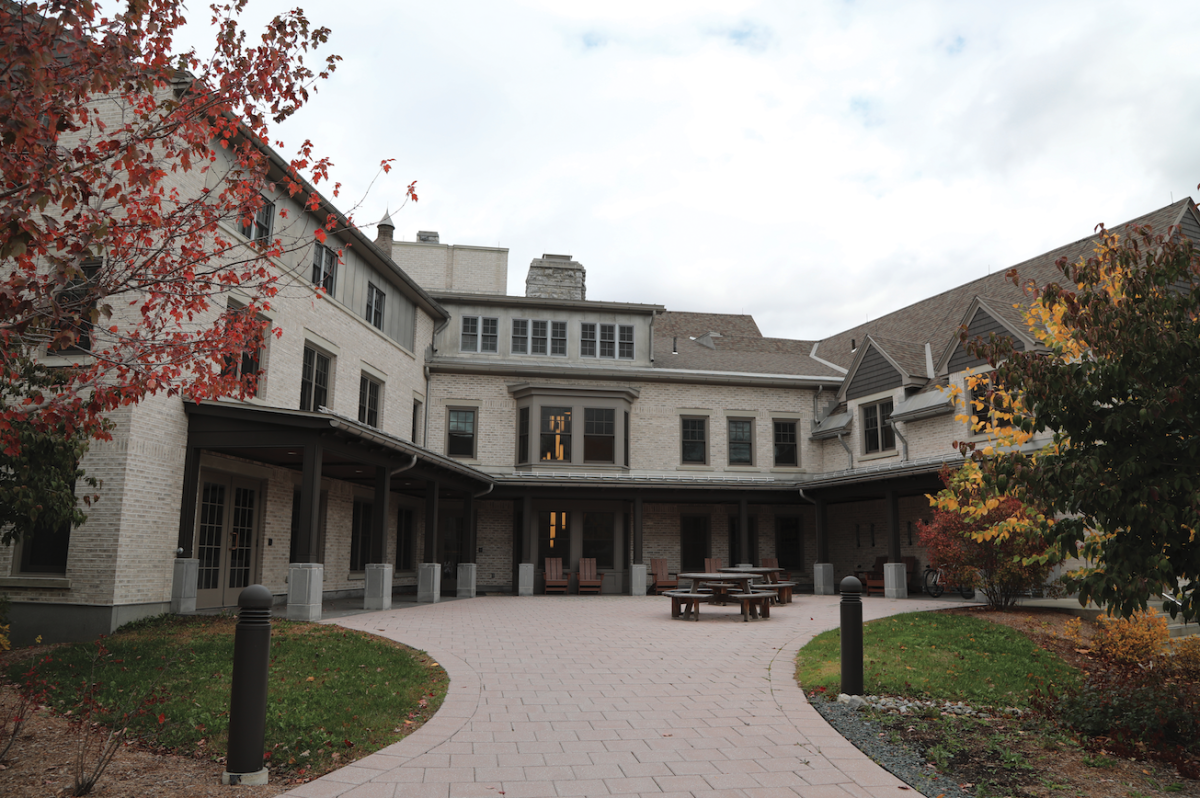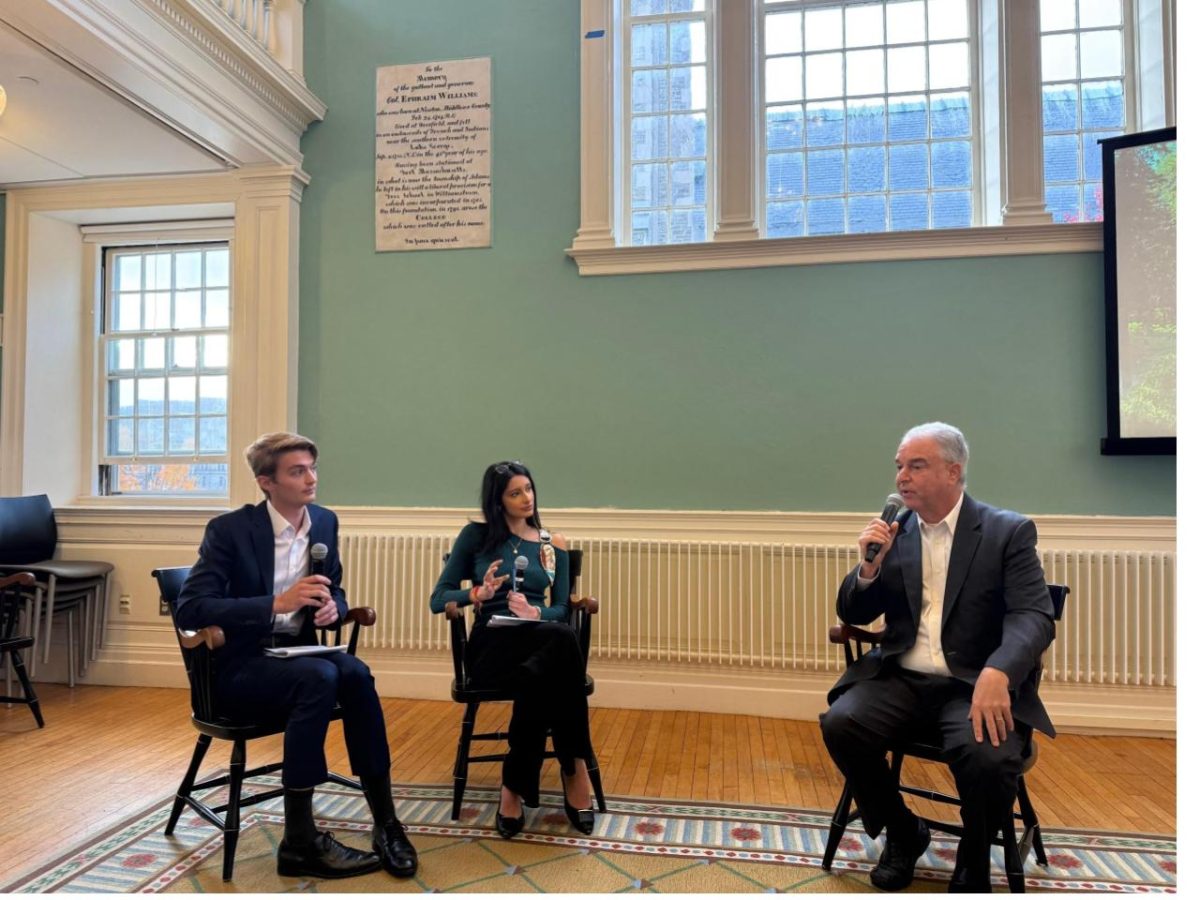Every fall, the Asian Studies department hosts an in-person celebration of the Mid-Autumn Festival, a cultural activity which involves sharing mooncakes with students. In light of the pandemic, that has now been put on hold. “We can only give them virtual mooncakes,” Chinese Language Fellow Woei Wei Koay said.
These “virtual mooncakes” are just one of the many ways this year looks different for the language departments and their students.
At this time each year, 13 language fellows and teaching associates (TAs) employed by the Center for Foreign Languages, Literature and Cultures (CFLLC) live on campus, teaching in the College’s classrooms and experiencing the social aspect of life at an American college. Today there are only 12 on campus, one deferring for a year due to pandemic travel limitations.
The CFLLC faced challenges last summer when many countries imposed travel restrictions due to COVID-19. For this reason, the Asian Studies department chose to hire two fellows who had already worked at the College in previous years, which is highly unusual, according to Administrative Director of the CFLLC Jane Canova.
“When [COVID] hit in March we had to scramble because it was not clear whether the U.S. government would allow people traveling from Hong Kong or Taiwan or the P.R.C. [China] — places from which we recruit our Language Fellows and Teaching Associates — to come to the U.S.,” Chair of Asian Studies and Professor of Political Science Sam Crane wrote in an email to the Record.
Ziyue Jiao was a language fellow during the 2018-19 academic year and is now at the College once again teaching CHIN 201 and 301. Last year, she had a teaching position at Vassar, which left her stranded in the U.S. when the pandemic began.
As Jiao was applying for jobs over the summer, Professor of Chinese Cecilia Chang reached out to her. “[Chang] said, ‘We need one [more] language fellow, but it’s really hard to get a new one from China or from Taiwan now because of visa issues,’” Jiao explained.
Jiao’s original plan had been to go back home to mainland China at the end of last summer, but after flights were canceled and she learned that she might not have a chance to re-enter the U.S. if she left, she accepted Chang’s offer.
The second Chinese language fellow position is also being filled by a returning fellow; Koay was at the College last year and decided to stay when the department offered. “It was not that safe to travel back to Malaysia,” where she is from, Koay said. She noted that, had the College hired a new fellow from Taiwan, that new fellow “would have to adjust herself to everything remotely… and that would be hard for the professor to train her.” Koay added, “I think it’s a win-win situation.”
Although all the current fellows and TAs live on campus, many of their classes are still being taught in a remote format. Koay is a fellow for CHIN 101 and 401, which she says entails more responsibilities than in the past. The Chinese department split a section of 20 students — a typical number of students for CHIN 101 — into two smaller groups in order to work around the limitations of Zoom. “With Zoom, we need to have a space for [the slides], and then we need to see the students as well as our notes,” Koay explained. For language classes in particular, face-to-face interaction with each and every student is critical.
“In Zoom, you have to really focus to be able to know which [students] I’ve already called the names of and which ones I didn’t,” Koay said. As a result of the smaller class groupings, Koay now teaches more sections than she used to.
Jiao also remarked on the difficulty of teaching a language over the internet, where body language and facial cues can be so easily overlooked. “Two years ago, we didn’t use any PowerPoints, but this year every [class] is required to use PowerPoints to give students visual input,” Jiao said. “In a real classroom, we can just act out what we want to teach them. This year it doesn’t work.”
According to Canova, the hiring process for the remaining language fellows and TAs remained largely the same, but the process by which they came to the U.S. was complicated by visa regulations and travel bans.
“It was touch and go for quite a while,” Canova said. “One TA even gave a one-day notice that he was coming to the States. We had four airplane cancellations, but then they were able to rebook.” The European TAs also had to obtain national interest exemptions, which circumvent the president’s suspension of entry to the United States of certain travelers with nonimmigrant visa applications, according to Canova.
According to Chair of German and Russian and Professor of Russian Janneke van de Stadt, the department suggested that the hired TA from Russia defer for a year. “She was having a very hard time getting a visa through the American consulate in Moscow that was closed under the pandemic limitations,” van der Stadt said. The TA considered arriving late in the year, but decided against it, according to van der Stadt.
Because of the Russian department’s small size, the absence of their only TA would have a significant impact on the program. “A key feature would be missing from how students learn, how they interact in Russian outside of class,” van der Stadt said. As a result, the department offered the TA position to a Russian instructor who is now teaching remotely from California — the only TA not on campus.
Even after the remaining fellows and TAs made it to campus, their daily lives have looked markedly different from past years as a result of the same COVID restrictions the College imposes on students. “They can only get together in a group of 10, although there are 12 of them,” Canova said. Their ability to live cooperatively and socialize has also been limited.
Jiao lives in the same room in the same house on Stetson Ct. that she occupied two years ago. This year, only three people live in the house as opposed to the usual four, and all three of them are from the Chinese department.
Typically, housing assignments are made “to promote linguistic diversity — so that no TA/LF teaching the same language live together,” Canova said.
“In any given year, we try to give preference for religious reasons or noise tolerance,” Canova said, but this year, she explained, “The Chinese program grouped their TA/LFs together to avoid any disruptions in the teaching due to possible contagion of the coronavirus.”
During the 2018-2019 academic year, the language fellows and TAs would often have weekly dinner gatherings as a group. “Every week, a different house holds the party,” Jiao said. Now, with in-person activities frowned upon, department-wide gatherings have largely been held over Zoom.
Van der Stadt described similar difficulties moving the Russian department’s annual cultural activities for students into a remote format. “One of the big ones every fall, we do a huge Russian potluck dinner,” she said. In addition to cooking Russian dishes, past activities have also included a talent show and Russian tea. “We’re trying to replicate it now online,” van der Stadt said. “It’s not the same thing.”
Ultimately, while all the language programs at the College have managed to make do given the circumstances, the experience of teaching and learning a language is much altered. “Language is communication and socializing, and with COVID that’s hard over Zoom” van der Stadt said. “It’s doable. But it’s not ideal.”














